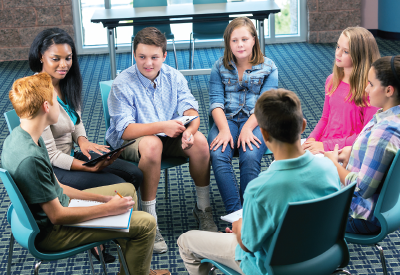Social skills training (SST) is one of the most common therapies provided to children and adolescents with autism spectrum disorder (ASD), yet there is sparse evidence to show how well it works. There have been clinical studies suggesting SST—which incorporates behavioral training, role-playing, and social activities to improve communication, interaction, and confidence—is modestly effective, but these have been conducted in controlled environments.
A study published in the July issue of the Journal of the American Academy of Child and Adolescent Psychiatry provides some of the first real-world data on SST. Researchers reported that this approach provides some benefit, but it is inconsistent. SST also seems to be more effective in adolescents, particularly adolescent females.
The novel finding regarding gender is important, noted lead investigator Sven BɆlte, Ph.D., a professor of child and adolescent psychiatry at Stockholm’s Karolinska Institutet, and colleagues. Previous clinical studies have involved almost entirely male participants, making gender effects difficult to parse out.
Elizabeth Laugeson, Ph.D., an assistant clinical professor of psychiatry and biobehavioral sciences at the University of California, Los Angeles, found the gender differences curious, since her own research (she co-developed a social skills program known as PEERS, as described in the
October 2, 2015, issue of Psychiatric News) has not seen such differences.
“This phenomenon needs further examination, but it is quite encouraging, since the female population has been largely overlooked in autism research,” Laugeson told Psychiatric News.
The results showing better adolescent performance were less curious, Laugeson added, since the intervention the authors used was not parent assisted. While adolescents have more independence, younger children need parental involvement to gain the most benefit.
In addition, the study intervention, which is called KONTAKT, was set up so adolescents received 90-minute sessions each week compared with 60-minute sessions for children, so they were getting more therapeutic time as well.
As a whole, though, this study was welcome news as it provides some positive data backed by the rigor of a randomized, placebo-controlled trial and the applicability of a naturalistic study, she said.
For this study, Bolte and his colleagues recruited 296 youth (88 female) aged 8 to 17 with ASD and no underlying intellectual disability. The participants were divided to receive either 12 weeks of KONTAKT in addition to their standard care (which could include psychotherapy, speech therapy, and/or other interventions depending on need) or standard care alone. KONTAKT is a structured program that incorporates cognitive-behavioral therapy (CBT), computer-based training programs, behavioral activation, and other educational elements in a group-based session.
The sessions were carried out across 13 outpatient child psychiatry clinics in Sweden by the regular staff. The primary outcome measure was changes in the parent and teacher reports of the Social Responsiveness Scale (SRS), which assesses social communication ability. Parents, teachers, and the session trainers also provided reports for several secondary outcomes, including the children’s overall functioning, ASD symptom severity, and parental stress.
At the end of the intervention period, there were no significant differences between the SST and standard care groups among children aged 8 to 12. However, adolescents receiving KONTAKT had around an 8-point positive change in parental SRS scores; this improvement persisted at a three-month follow-up visit.
When assessing by gender, the authors found no differences between the groups among males, but females in the KONTAKT group had about a 9-point improvement in their parental SRS scores compared with females in the standard care group at the end of the study; however, these improvements were no longer evident at the three-month follow-up.
Among the secondary outcomes for all ages, SST moderately improved adaptive functioning scores as reported by parents and symptom severity as reported by the trainers. Analysis of the teacher reports did not indicate any difference between the groups, but the authors did report that the response rate from teachers was fairly low. At the same time, they acknowledged that the parents and trainers knew which intervention the children were receiving, so there might have been some bias in their reporting.
“If there’s a take-home message for social skills practitioners, it’s that using an evidence-based curriculum is very important,” Laugeson said. “It’s not just what you teach, it’s how you teach. Many programs try to build social skills just by doing group activities or trying to create friendships like a shared-interest group would. Autism is not a shared interest.” ■
“Social Skills Training for Children and Adolescents With Autism Spectrum Disorder: A Randomized Controlled Trial” can be accessed
here. “Program Teaches Social Skills to Adolescents With Autism” is available
here.

